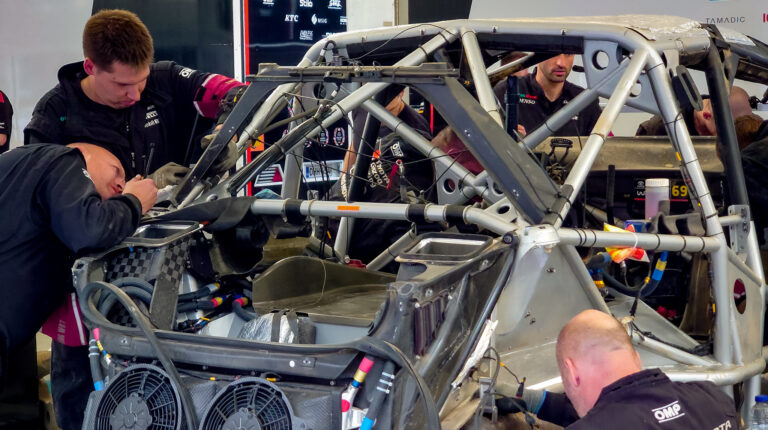In an abrupt reversal, the FIA has announced that the WRC technical regulations for Rally1 and Rally2 cars will now remain unchanged until the end of 2026.
As reported earlier this year, the FIA had announced that it planned to ditch hybrid systems in Rally1, and also introduce an upgrade kit for Rally2 machines to bring their performance closer to the top tier.
However, following the latest meeting of the World Motor Sport Council (WMSC), it has been decided that everything will stay as it is, with Rally1 retaining hybrid until the end of 2026, and new rules now slated for 2027.
Technical stability for WRC
In a statement, the FIA said, “All stakeholders are working positively together on the direction of the regulations for 2027 and beyond, and there is a good consensus between the World Council members and the manufacturers on the key targets that are aimed primarily at increasing participation at the highest level as previously set out by the FIA.
“It is a strong expectation of the World Council that the current manufacturers will commit to the long-term future of the sport well in advance. These regulations will be presented for approval at the December meeting of the World Council, allowing more than two year’s lead time for manufacturers to adapt.”
FIA president Mohammed Ben Sulayem said, “The WRC is hugely important to the FIA, it is the pinnacle of the rally discipline and I have had a lot of conversations with the manufacturers over the past weeks about its future direction. It is clear now that we all need to have technical stability for the next two years, but at the same time it is important for the FIA that, in providing this stability, we receive the same positive commitment from the manufacturers.”
WRC manufacturers approve
The decision has seemingly met with overall approval from the current manufacturers, Toyota, Hyundai and M-Sport/Ford.
Hyundai Motorsport president and team principal Cyril Abiteboul said, “We have worked very closely together with the FIA over the past months and while we all believe that stability of the technical regulations for 2025 and 2026 is the right thing, the very substantial steps made on the governance will provide for a more unified and positive approach towards the short-term improvements and long term breakthroughs that we all agree the sport needs.”



